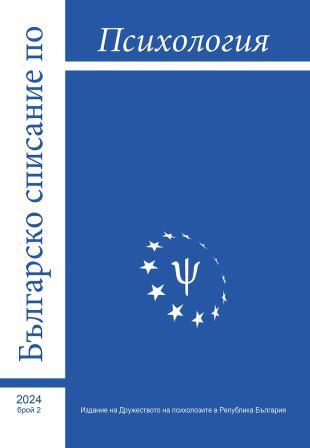ЕЗИКОВИ НАРУШЕНИЯ В ДЕТСКА ВЪЗРАСТ – „СПЕЦИФИЧНО ЕЗИКОВО НАРУШЕНИЕ“ ИЛИ „ЕЗИКОВО НАРУШЕНИЕ НА РАЗВИТИЕТО“
LANGUAGE DISORDERS IN CHILDHOOD – “SPECIFIC LANGUAGE IMPAIRMENT” OR “DEVELOPMENTAL LANGUAGE DISORDER”
Author(s): Ekaterina TodorovaSubject(s): Social Sciences, Psychology
Published by: Дружество на психолозите в република България
Keywords: specific language impairment; developmental language disorder; intellectual disability
Summary/Abstract: The paper presents a discussion of different views on the terms Specific Language Impairment (SLI) and Developmental Language Disorder (DLD) in the field of language and speech pathology. Both terms are used to refer to childhood language disorders that cannot be explained by intellectual disability, hearing loss, autism spectrum disorders (ASD), or social deprivation. DLD aims to replace SLD and is an umbrella term that includes children with language disorders who show a non-verbal IQ below 85% (Bishop et al., 2016). The general opinion of this article is that SLD is more correct because removing the IQ cut-off could create extreme group heterogeneity as well as opportunities for speculative diagnosis. Children with SLD demonstrate peculiarities not only in their language development (understanding and expression), but also in the development of other cognitive processes - attention, memory, thinking. However, it is important for clinical practice that these features are defined as primary (specific) to the condition, and not as a consequence of an intellectual deficit.
Journal: Българско списание по психология
- Issue Year: 2024
- Issue No: 2
- Page Range: 798-806
- Page Count: 9
- Language: Bulgarian

